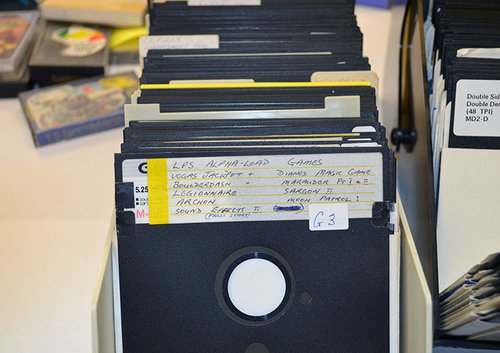
Play It Again was a project to collect early New Zealand and Australian video games. The project was led by Shane Farrow, then-New Zealand Film Archive Video Collection Developer and Video Games Project Manager, and ran throughout 2013 and 2014.
New Zealand’s digital video game history includes a significant quantity of locally written software titles from the late 70s and 1980s as well as some local production of consoles, handhelds and arcade games from the same period. Currently few people are aware of this, no significant institutional collections exist and institutional preservation efforts have been directed elsewhere.
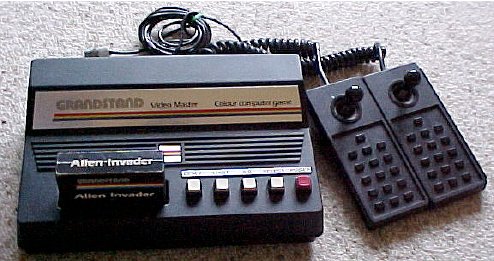
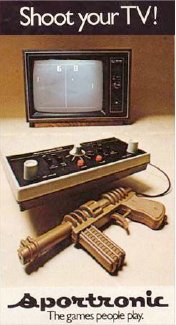
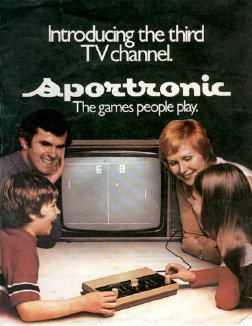
The New Zealand Film Archive partnered in 2012 with the project Play it Again: Creating a Playable History of Australasian Digital Games, for Industry, Community and Research Purposes. This was a cross-sector collaboration between academia and moving image institutions with the aims of making visible the presence and impact of computer games on moving image history and local culture.

The Film Archive wanted to collect working examples of software and hardware (with original source code particularly being sought after), with a priority on the early period given the rapid obsolescence of computer technology and the decay of silicon chips. For this nascent collection, NZFA collected a range of formats and platforms that represent the variety that was available and played on amongst New Zealand fan communities.
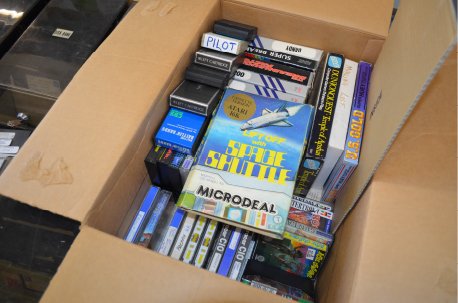
The project focus, on games of the 80s, meant following a very different acquisition path from the one we normally use – which involves networking with the production industry. Older film titles tend to come in passively and randomly and we don’t normally need to pursue them. Tracking down old video games though has required chasing lots of fruitless leads and really trying to enter the specialist world of the retro games collector. So joining classic computer forums and following obscure blogs has been par for the course and when you do find a collector who is willing to share resources – they’re invaluable!
Such a collector can put you in touch with other like-minded collectors and before long you are able to follow the traditional archival approach of collecting original media – in this case game software that typically exist in a number of proprietary formats.
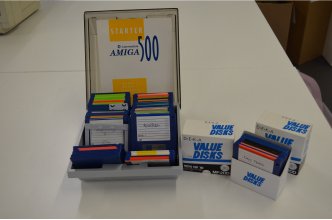
These have included floppy disks that come in 8”, 5 1/4”, 3 1/2” and 3” sizes; 8-bit data cassettes of various lengths and the very common ROM Cartridges that existed before many of the other formats and are even still used in some hand-held games today. Other oddities are essentially dedicated game devices like the Sportronic Light Gun and console, and a Grandstand pocket arcade. And while storage space had to be considered, the Film Archive was also collecting working computer systems – broadly looking to get examples of all the major 1980s platforms, both to facilitate the extracting of source code and for future exhibition use.
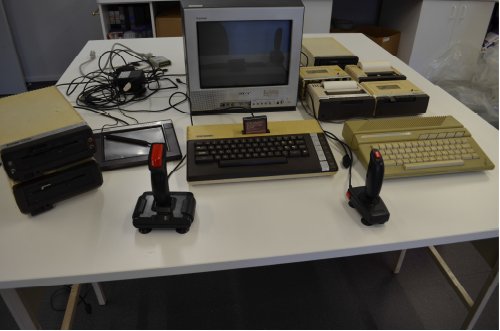
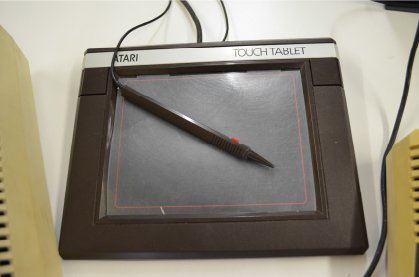
With software, preference was given to the games that were written by New Zealanders, whether wholly unique or adaptions of then-popular games. Through the Play It Again project, software converter tools were developed to convert several 1980s dialects of BASIC code to contemporary Java language – thus allowing the playback of old games in a browser window and the creation of multi-platform versions for modern devices.
Video game collectors have really been the default archivists, and it is largely due to their efforts and passion (maybe ‘obsession’ isn’t too strong a word in many cases) that there are still working examples of a range of the early consoles and micro-computers. It’s fair to say that many of today’s retro-computer collectors would have been school children when the first generation of personal computers or microcomputers began to be mass marketed in NZ in the late 1970s, and invariably many of them learnt computer programming language on the school’s Apple II or IIe, and turned these skills to developing simple game programmes.
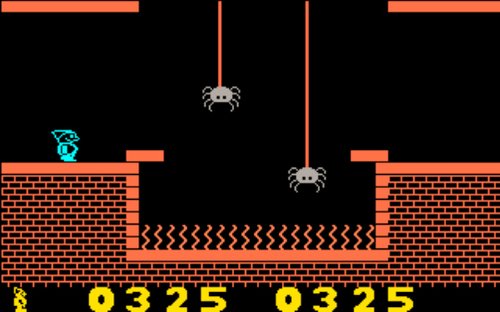
One such school boy, Carl Muller, started developing games in BASIC at the age of 13 on the C64 and by 15 had written several games including SMURFS, which he even managed to sell some copies of at the local bookshop. Muller wrote at least 15 games that we are aware of for the C64 and then the Vic 20 that were never published, before he moved to England and became a successful professional games writer/programmer, and has authored or co-authored numerous games including FIFA Soccer 96 and Mortal Kombat 2.
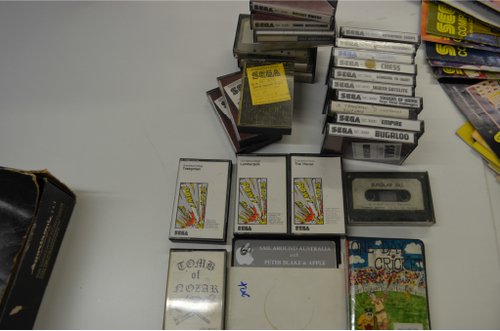
Various New Zealand games from this decade have been found and the list of known New Zealand games from the 1980s is now almost 250, although many of these are extremely rare and have been gleaned from collectors lists and published computer magazines of the day. Indeed another aim of the project was to document all the games titles and contextual information, for both commercial and amateur New Zealand games from the 1980s for future industry, community and research uses.